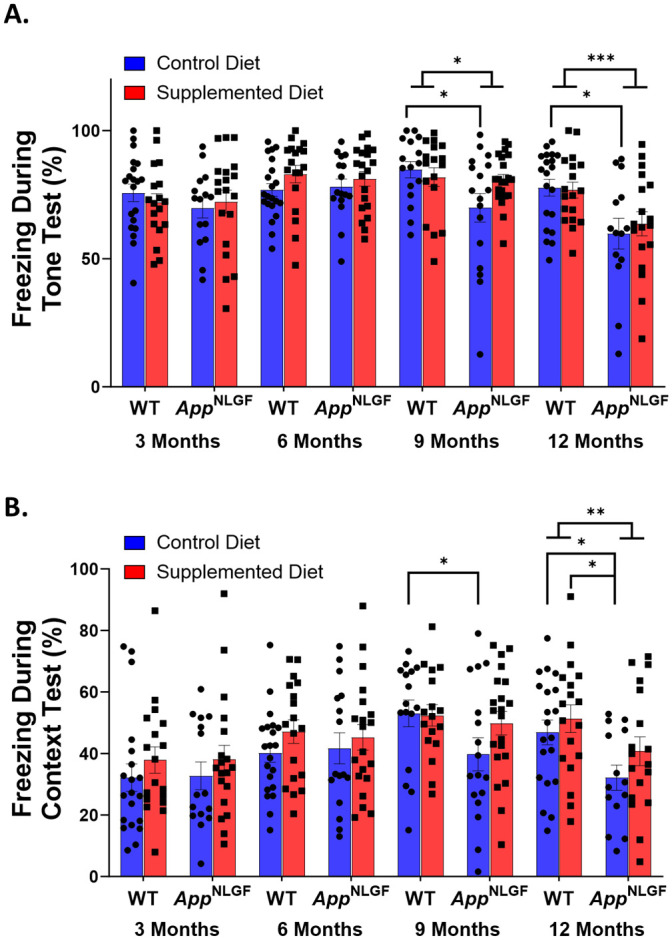Fig 2. AppNL-G-F mice display impaired fearful learning and memory at 9- and 12-months-old that can be somewhat prevented by perinatal choline supplementation.

(A) Percent of time freezing during the tone test of contextual fear conditioning revealed significant effect of genotype as AppNL-G-F mice froze significantly less than wildtype mice at 9- and 12-months of age (9-Months- F(1, 63) = 4.33, p = 0.042; 12-Months- F(1, 62) = 12.06, p = 0.0009; ANOVA). This deficit could be prevented by perinatal choline supplementation at 9- and 12-months of age. (B) Percent of time freezing during the context test of contextual fear conditioning revealed that control diet AppNL-G-F mice froze significantly less than control diet wildtype mice at 9- and 12-months of age and that perinatal choline supplementation could prevent these deficits at both ages (9-Months- Control WT (52.99 ± 4.7%) vs Control AppNL-G-F (39.69 ± 4.5%) p = 0.032; 12-Months- Control WT (46.84 ± 3.7%) vs Control AppNL-G-F (32.27 ± 4.6%) p = 0.016; Tukey). There was a significant effect of genotype in 12-month-old mice in the context test as 12-month-old AppNL-G-F mice spend significantly less time freezing during the context test than wildtype mice (F(1, 62) = 9.74, p = 0.003; ANOVA).
